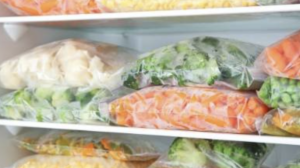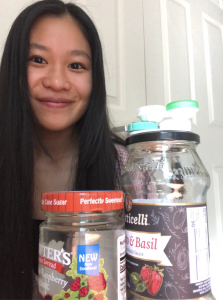
Small Zero Waste Habits to Implement at Home
By: Michelle Ly, Senior in Emory College, Neuroscience and Behavioral Biology Major

Recently, I’ve been reflecting on how I got interested in practicing a zero waste lifestyle. When did this passion for reducing waste start and how did it start? Looking back to my childhood, I’ve realized my parents played a huge role in starting my passion for zero waste. They’re the original zero waste enthusiasts that introduced me to zero waste habits. It’s funny how this came full circle, as they were not aware of the concept and term of “zero waste” until I explained it to them during my senior year of high school. Although we aren’t completely zero waste, as a family, we’ve essentially been practicing zero waste habits for as long as I can remember, and I’ve found many of my aunts and uncles and their families also practice some of these habits!
In this blog post, I’d like to share with you the habits my family has been practicing over the years to reduce waste and save energy. They’re small changes you can implement at home or at college and are easily adaptable to fit your current circumstances.
Food Waste
- At the Grocery Store: My mom almost always keeps a grocery list on hand, whether physically on the kitchen counter or electronically on her phone. This helps prevent impulse buying of extra food items. Another organizational step we take to reduce our shopping footprint is keeping produce bags in the car. This helps us limit the number of plastic bags we need at the store if we decide we need to go to the store without planning ahead.
- Freezing Vegetables: My family usually stocks up on produce by buying
 bulk because of seasonal discounts. However, stored produce has a short shelf. We’ve found making use of the limited freezer space we have to store our surplus of seasonal produce is a great way to avoid spoilage. You can chop up the veggies and put them in freezer bags. Mixing veggies together can also create a ready-to-go soup mix!
bulk because of seasonal discounts. However, stored produce has a short shelf. We’ve found making use of the limited freezer space we have to store our surplus of seasonal produce is a great way to avoid spoilage. You can chop up the veggies and put them in freezer bags. Mixing veggies together can also create a ready-to-go soup mix!
Rinse and Reuse
 Glass: We love replacing our broken Tupperware with the glass jars and containers that come with all sorts of food items. Glass is safe to repurpose indefinitely with regular cleaning, so it’s great for food storage.
Glass: We love replacing our broken Tupperware with the glass jars and containers that come with all sorts of food items. Glass is safe to repurpose indefinitely with regular cleaning, so it’s great for food storage.
- Plastic: Reusing containers is one inexpensive way to reduce the environmental impact of packaging. Over the years we’ve accumulated plastic containers from ordering take-out. We typically try to take these with us when we decide to go to a restaurant to take home leftovers! As plastic is quite durable, many of our containers are also used to store and freeze food and carry snacks when we go on road trips.
Saving Energy
- Light and appliances: Turn off lights and appliances when you aren’t using them. We make an effort to do this if no one will be in the house or whenever one of us leaves the room. You can also use appliances less by doing household tasks manually. For our family, we hang-dry our workout clothes instead of using the dryer and wash dishes by hand.
Image credit: University, U. (2020, October 09). Vegetable freezing methods. Retrieved March 18, 2021, from https://extension.usu.edu/preserve-the-harvest/research/vegetable-freezing
